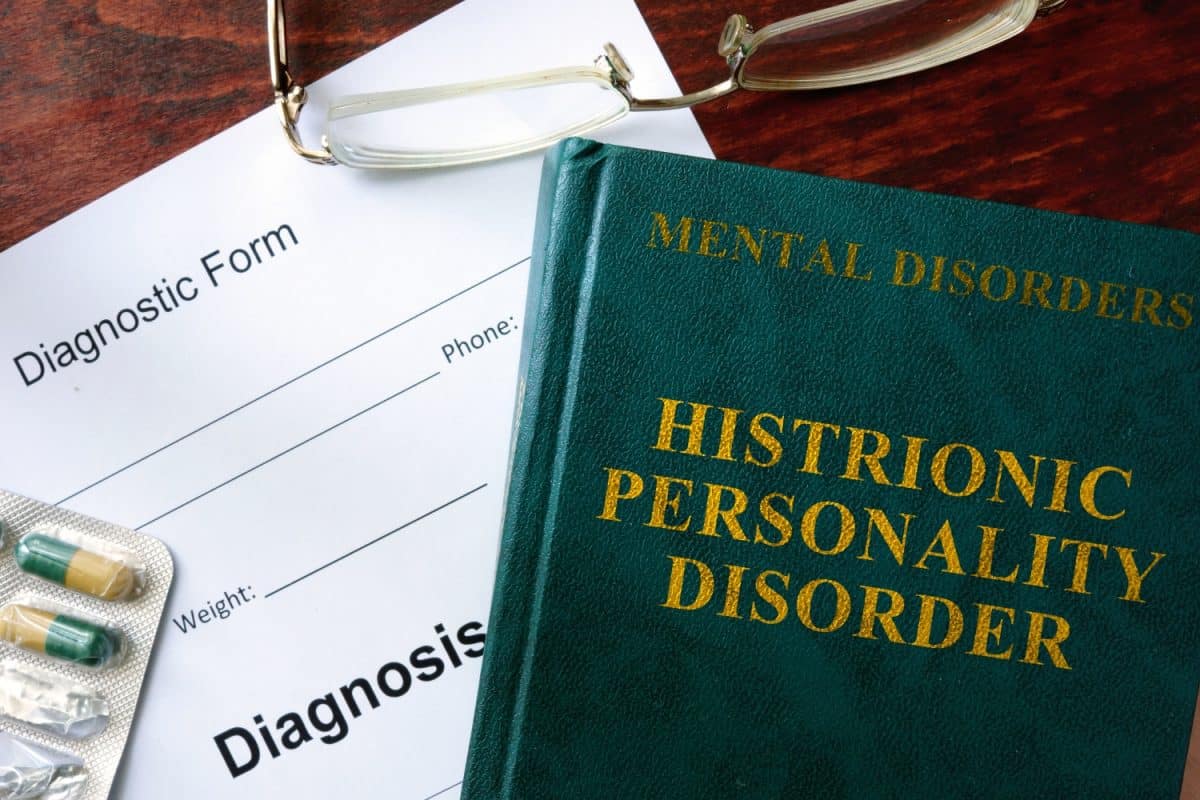According to researchers, histrionic personality disorder, or HPD, is one of psychiatry’s most ambiguous diagnostic categories (Historical Roots of Histrionic Personality Disorder, Filipa Novais et al., September 2015).
The origins of histrionic personality disorder
The origins of HPD stem back to the Ancient Egyptians and Greeks, who believed that a displaced womb was the cause of many women’s problems.
Hysteria
Jean-Martin Charcot, the forefather of psychoanalysis, identified hysteria as a type of neurosis, whereas Charcot’s counterpart, Sigmund Freud, believed that neurosis was a regression to previous psychological trauma.
According to psychiatry, hysteria is a term that involves various psychopathological states.
Hence, hysteria is pertinent when exploring the origins of mental illness, namely personality disorders and other conditions.
Diagnostic and statistical manual of mental disorders

The research literature posits that histrionic personality disorder first appeared in the diagnostic and statistical manual II (DSM II).
Since HPD was first introduced, there has been much discussion about whether the disorder should remain an official diagnosis since many of the symptoms overlap with other personality disorders.
For example, some HPD symptoms may overlap with other conditions, such as narcissistic personality disorder.
Early roots of histrionic personality disorder
According to Old Rome, the term ”histrione” was used to describe ”coarse farces”, which represent those who are theatrical and false (Historical Roots of Histrionic Personality Disorder, Filipa Novais, et al., September 2015).
Several definitions describe the term ”histrionic”; therefore, you may come across words like ”excessively theatrical”, ”melodramatic” ”actorly”, and ”exaggerated” when looking up HPD.
Symptoms of histrionic personality disorder HPD
In psychiatry, the above adjectives get translated into a set of symptoms wherein people with histrionic personality disorder exhibit symptoms such as:
- An excessive need to be the centre of attention
- Rapidly shifting and shallow expression of emotions
- Adopting a style of language or speech that is overly impressionistic with little to no detail
- Displaying inappropriate provocative or sexually seductive behaviour
- Theatricality, self-dramatisation, and exaggerated expression of emotion
- Being easily influenced by others and highly suggestible
- Believing relationships to be more intimate than they are
People with HPD tend to get bored quickly and dislike routine; they can also be impulsive and make rash decisions on a whim; moreover, to get the attention they crave, they may also threaten to commit suicide.
How do people get diagnosed with HPD?

Diagnosing HPD can be challenging since no specific assessment or test determines a diagnosis.
If you think you may have symptoms of HPD, you must speak to your healthcare provider about your concerns.
Ruling out other conditions
Your doctor will likely examine your health history and may perform a physical exam to ensure that a physical health issue does not cause your symptoms.
If your doctor cannot find a physical cause for your symptoms, they will likely refer you to a mental health professional for further assessment and treatment.
Mental health professionals are trained to diagnose and treat mental disorders and often use specific questions to understand your history better.
Studies show that many people with histrionic personality disorder are unaware they have a mental health issue. Instead, as is often the case, they present with symptoms of other mental health conditions such as anxiety or depression.
Many people with HPD enter therapy due to anxiety or depression, often due to crumbled or failed relationships. Thus, such people get diagnosed with a histrionic personality disorder during treatment.
Risk factors
Like most personality disorders, the cause of HPD is unknown.
Researchers and scientists believe that environmental and genetic factors might be responsible for the development of histrionic personality disorder.
Many experts believe that children whose parents have HPD pick up certain behaviours from their caregivers, suggesting that HPD behaviours get learned through one’s environment.
Children may adopt HPD behaviours to get attention and love from their caregivers.
Additionally, studies show that certain parental styles, such as a lack of structure or discipline or encouraging dramatic behaviours in childhood, may influence the development of histrionic personality disorder.
Moreover, having a family history of HPD can put people at risk of developing the disorder, suggesting that genetics may play a role.
Treatment
Treatment interventions for histrionic personality disorder can be tricky since many people with HPD believe they do not have a problem and refuse to seek help.
However, effective HPD treatments include a mixture of psychotherapy and medications.
Psychotherapy

Psychotherapy, a talk therapy, is an effective treatment option for HPD.
Broadly, psychotherapy involves speaking about your thoughts and feelings with a psychotherapist who can help you translate your emotions, allowing you to understand the reasoning behind your behaviours and actions.
Psychotherapy teaches people the skills to help them relate to others healthier instead of using drama or conflict to get attention.
HPD sufferers with co-occurring conditions like anxiety or depression may get prescribed antidepressants or anti-anxiety medications.
Historical roots of histrionic personality disorder
Many earlier psychological views of histrionic personality disorder may be controversial in today’s culture.
For example, Austrian psychoanalyst Willhelm Reich (1897 -1957) wrote the following piece about histrionic personality disorder:
”Coquetry in gait, look, or speech betrays, especially in women, the hysterical character type.
We find fickleness of reactions and strong suggestibility, which never appears alone but is coupled with a strong tendency to reactions of disappointment” (Historical Roots of Histrionic Personality Disorder, Filipa Novais, et al., September 2015).
Further considerations

Another perspective on histrionic personality disorder is from Easser and Lesser (1965), who integrated two distinctive approaches: Freud’s libido theory and the ego psychology school.
Easser and Lesser proposed that hysteria consists of two extremes:
- The hysterical personality
- The hysteroid (borderline) personality
The researchers separated people into two groups; ”good” hysterics (people who functioned relatively well) and ”bad” (people with poor object relations and weak egos).
Conclusion
The study concluded that those with weak egos and poor object relations have similar personalities and functioning to those observed in borderline patients.
The term ”hysterical” is a significant feature within the literature; however, such a term was removed from the DSM II and replaced with ”histrionic” in the DSM III version.
What is the outlook for people with a histrionic personality disorder?
Fortunately, many people with HPD are functional in society and their careers and lead everyday lives. Many people with HPD tend to do well in various social settings. However, they may struggle in intimate relationships.
In severe cases, HPD may affect a person’s ability to maintain a stable job and relationships. People with HPD may struggle to focus on their goals and may be attracted to risky pursuits and adventures.
Overall, the outlook is positive for people with HPD. However, those with histrionic personality disorder are at higher risk of depression, which may affect how they deal with loss and disappointment. Therefore, if an individual thinks they may have symptoms of HPD, they must speak to a doctor or professional for advice and support.
Contact us
Contact the specialist team at White River Manor today for further support and information.
Helpful Resources
- Histrionic Personality Disorder: Healthline: Carmela Wint, August 2017
- Historical Roots of Histrionic Personality Disorder: ResearchGate: Filipa Novais and Colleagues, September 2015







